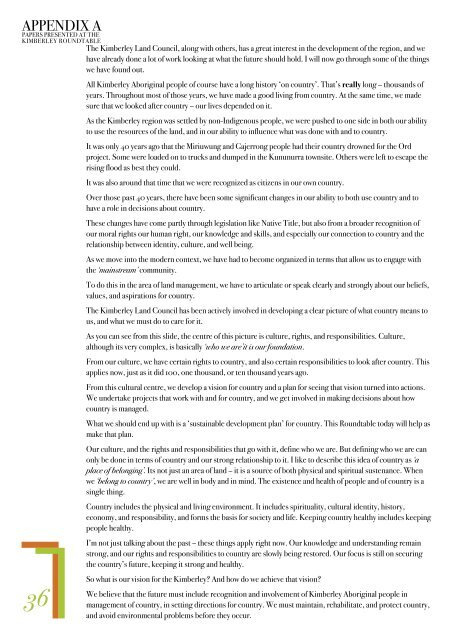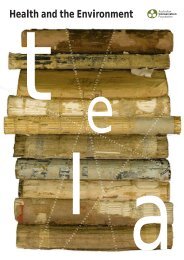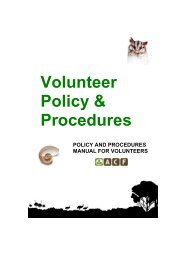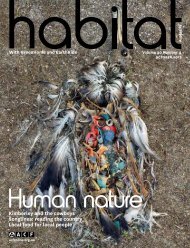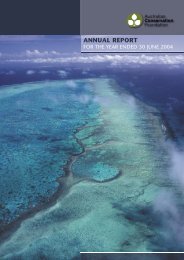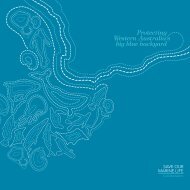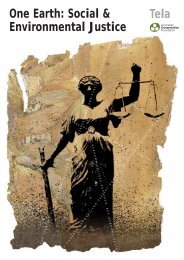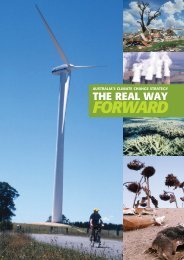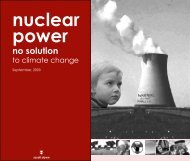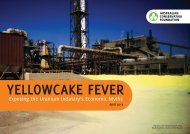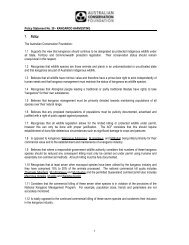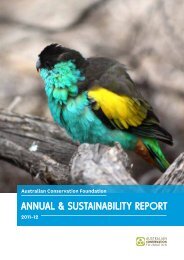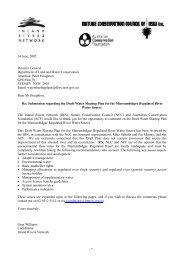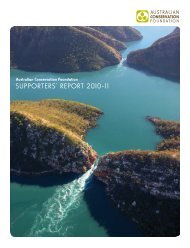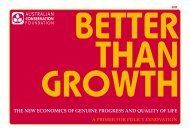Kimberley Appropriate Economics Interim Report - Australian ...
Kimberley Appropriate Economics Interim Report - Australian ...
Kimberley Appropriate Economics Interim Report - Australian ...
You also want an ePaper? Increase the reach of your titles
YUMPU automatically turns print PDFs into web optimized ePapers that Google loves.
36<br />
The <strong>Kimberley</strong> Land Council, along with others, has a great interest in the development of the region, and we<br />
have already done a lot of work looking at what the future should hold. I will now go through some of the things<br />
we have found out.<br />
All <strong>Kimberley</strong> Aboriginal people of course have a long history ‘on country’. That’s really long – thousands of<br />
years. Throughout most of those years, we have made a good living from country. At the same time, we made<br />
sure that we looked after country – our lives depended on it.<br />
As the <strong>Kimberley</strong> region was settled by non-Indigenous people, we were pushed to one side in both our ability<br />
to use the resources of the land, and in our ability to influence what was done with and to country.<br />
It was only 40 years ago that the Miriuwung and Gajerrong people had their country drowned for the Ord<br />
project. Some were loaded on to trucks and dumped in the Kununurra townsite. Others were left to escape the<br />
rising flood as best they could.<br />
It was also around that time that we were recognized as citizens in our own country.<br />
Over those past 40 years, there have been some significant changes in our ability to both use country and to<br />
have a role in decisions about country.<br />
These changes have come partly through legislation like Native Title, but also from a broader recognition of<br />
our moral rights our human right, our knowledge and skills, and especially our connection to country and the<br />
relationship between identity, culture, and well being.<br />
As we move into the modern context, we have had to become organized in terms that allow us to engage with<br />
the ‘mainstream’ community.<br />
To do this in the area of land management, we have to articulate or speak clearly and strongly about our beliefs,<br />
values, and aspirations for country.<br />
The <strong>Kimberley</strong> Land Council has been actively involved in developing a clear picture of what country means to<br />
us, and what we must do to care for it.<br />
As you can see from this slide, the centre of this picture is culture, rights, and responsibilities. Culture,<br />
although its very complex, is basically ‘who we are’it is our foundation.<br />
From our culture, we have certain rights to country, and also certain responsibilities to look after country. This<br />
applies now, just as it did 100, one thousand, or ten thousand years ago.<br />
From this cultural centre, we develop a vision for country and a plan for seeing that vision turned into actions.<br />
We undertake projects that work with and for country, and we get involved in making decisions about how<br />
country is managed.<br />
What we should end up with is a ‘sustainable development plan’ for country. This Roundtable today will help as<br />
make that plan.<br />
Our culture, and the rights and responsibilities that go with it, define who we are. But defining who we are can<br />
only be done in terms of country and our strong relationship to it. I like to describe this idea of country as ‘a<br />
place of belonging’. Its not just an area of land – it is a source of both physical and spiritual sustenance. When<br />
we ‘belong to country’, we are well in body and in mind. The existence and health of people and of country is a<br />
single thing.<br />
Country includes the physical and living environment. It includes spirituality, cultural identity, history,<br />
economy, and responsibility, and forms the basis for society and life. Keeping country healthy includes keeping<br />
people healthy.<br />
I’m not just talking about the past – these things apply right now. Our knowledge and understanding remain<br />
strong, and our rights and responsibilities to country are slowly being restored. Our focus is still on securing<br />
the country’s future, keeping it strong and healthy.<br />
So what is our vision for the <strong>Kimberley</strong>? And how do we achieve that vision?<br />
We believe that the future must include recognition and involvement of <strong>Kimberley</strong> Aboriginal people in<br />
management of country, in setting directions for country. We must maintain, rehabilitate, and protect country,<br />
and avoid environmental problems before they occur.


